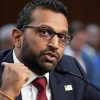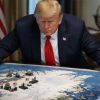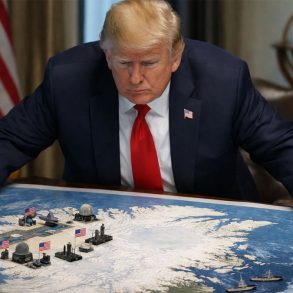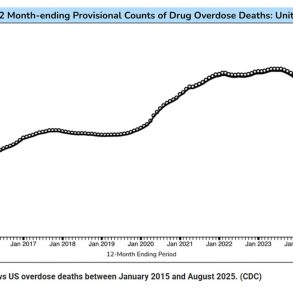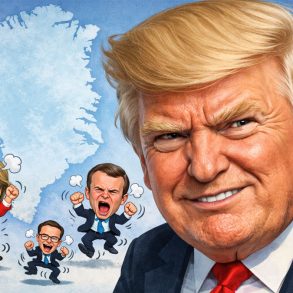The war in Ukraine has reached a critical moment, not just on the battlefield but in the halls of international diplomacy. Former President Donald Trump has launched a scathing attack on Ukrainian President Volodymyr Zelenskyy, calling him a “dictator without elections.” Meanwhile, Zelenskyy has accused Trump of parroting Russian propaganda. The public feud between the two leaders raises an important question: Is Trump deliberately sidelining Zelenskyy to push a settlement with Russia on his own terms, or is he simply reflecting a shift in American foreign policy priorities?
Background: The War and the Stalled Peace Talks
The war in Ukraine began in February 2022 when Russian President Vladimir Putin ordered a full-scale invasion, seeking to bring Ukraine back under Moscow’s influence. Over the past three years, Ukraine has fought a brutal defensive war, relying on billions of dollars in Western aid to sustain its military efforts. The United States has been Kyiv’s most significant ally, providing nearly $120 billion in aid, including $67 billion in military support and $31.5 billion in economic assistance.
However, peace talks have remained elusive. Russia has repeatedly insisted on major Ukrainian concessions, including territorial losses and a halt to Kyiv’s NATO ambitions—terms that Ukraine has steadfastly rejected. Now, with Trump once again a dominant figure in U.S. politics, he appears eager to break the deadlock, but his approach is raising alarms in Kyiv and beyond.
Trump’s Attacks on Zelenskyy
Trump’s criticisms of Zelenskyy have been harsh and pointed, aligning closely with Russian rhetoric. He has accused the Ukrainian leader of mismanaging U.S. aid, failing to hold elections—something that is barred under Ukrainian wartime law—and even being responsible for the war itself.
“He refuses to have elections, is very low in Ukrainian Polls, and the only thing he was good at was playing Biden ‘like a fiddle,’” Trump wrote on social media. “A Dictator without Elections, Zelenskyy better move fast or he is not going to have a country left.”
This statement echoed Kremlin narratives that have sought to delegitimize Zelenskyy’s government. Russian officials, including Foreign Minister Sergei Lavrov, have similarly questioned the legitimacy of Ukraine’s leadership, using the wartime suspension of elections as a pretext.
Trump also exaggerated the scale of U.S. assistance to Ukraine, claiming that America had sent $350 billion in aid. Zelenskyy quickly refuted this claim, pointing to official figures that place the total closer to $119 billion. “We saw this disinformation,” Zelenskyy responded. “We understand that it is coming from Russia. We understand this and have proof that these figures are being discussed between America and Russia.”
Zelenskyy Fires Back
Zelenskyy has pushed back forcefully against Trump’s claims, accusing him of being trapped in a “disinformation space.” He has also expressed growing frustration that Ukraine has been excluded from recent peace discussions between the United States and Russia.
Trump’s stance became even clearer after a meeting between American and Russian officials in Riyadh, Saudi Arabia. This meeting, which focused on negotiating an end to the war, notably excluded Ukraine from the talks. Trump has since indicated that Zelenskyy must hold elections if he wants a seat at the table, despite the ongoing war making such a move nearly impossible.
“Yesterday, there were signals of speaking with them as victims,” Zelenskyy said, referring to the shift in U.S. rhetoric toward Russia. “That is something new.”
Is Trump Trying to Marginalize Zelenskyy?
Trump’s willingness to engage with Putin while sidelining Zelenskyy suggests a strategic shift in U.S. policy. His comments imply that Ukraine is partially to blame for the war’s continuation, a stark departure from previous U.S. policy, which placed full responsibility on Russian aggression.
For Zelenskyy, this is deeply concerning. Ukraine has suffered immense losses, with tens of thousands of soldiers and civilians killed, entire cities leveled, and millions displaced. The notion that peace negotiations could proceed without Ukrainian involvement—or that peace could come at the cost of territorial concessions—is unacceptable to Kyiv.
Russia’s Response and Global Implications
Unsurprisingly, Russia has welcomed Trump’s position. Lavrov praised Trump’s willingness to negotiate, stating that he “is the first, and so far only Western leader to publicly and loudly say that one of the root causes of the Ukraine situation is the impudent line of the previous administration to draw Ukraine into NATO.” Putin also described recent U.S.-Russia talks as “friendly,” noting that the Trump team was more open to discussions than past American administrations.
If Trump succeeds in pressuring Ukraine into negotiations on unfavorable terms, it could shift the balance of power in the conflict dramatically. Ukrainian officials have warned that Russia does not negotiate in good faith and that any agreement lacking security guarantees would only lead to further aggression.
“Russia doesn’t want to negotiate with Ukraine, it wants to destroy it,” said Ukrainian Army Maj. Arislav Pasternak. “So negotiations with them are impossible unless victory on the battlefield becomes impossible for them.”
The Stakes for Ukraine and the West
The escalating feud between Trump and Zelenskyy underscores the fragility of Ukraine’s position. The U.S. has been its most crucial ally, and a shift in Washington’s stance could leave Kyiv vulnerable. While European nations have pledged continued support, they lack the military and financial weight of the U.S.
For now, Ukraine remains resolute. “Nobody in Ukraine trusts Putin,” Zelenskyy said. His government is seeking stronger security guarantees and continued Western military aid to prevent Russia from dictating the terms of any peace settlement.
Meanwhile, Trump’s stance raises broader concerns about U.S. foreign policy. If he pushes for a settlement that forces Ukraine to make painful concessions, it could embolden authoritarian leaders worldwide, signaling that aggression can succeed if pursued long enough.
As Trump continues to shape the debate over the war, one thing is clear: Ukraine’s fate is now a political battleground in Washington, and Zelenskyy’s ability to navigate these tensions could determine the country’s future.
NP Editor: Our sources seem to think that Putin doesn’t really care much about Ukraine as an entity, it merely wants to protect its only warm water port, with enough of a buffer that it cannot be harrassed. Many people do not realize that since Russia captured the Crimea, Ukraine has continually harrassed them including cutting off its water.
Trump knows this, and is working on the assumption that Russia will not give up his warm water port under any circumstances , and kicking him out of the occupied regions would at best be exceedingly expensive and at worst cause a wider, perhaps nuclear war. Peace really only has one solution – returning all to Ukraine has never been in the cards.

